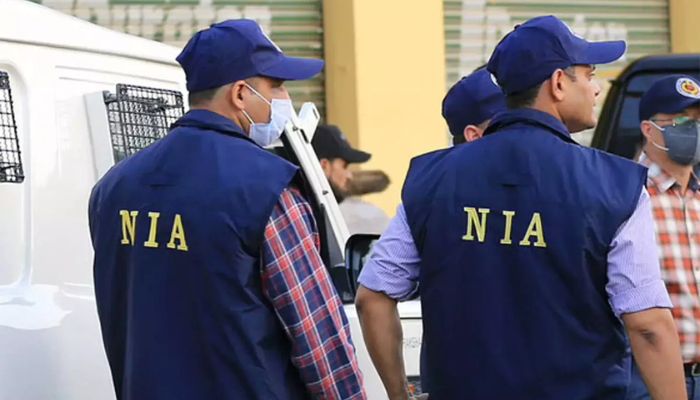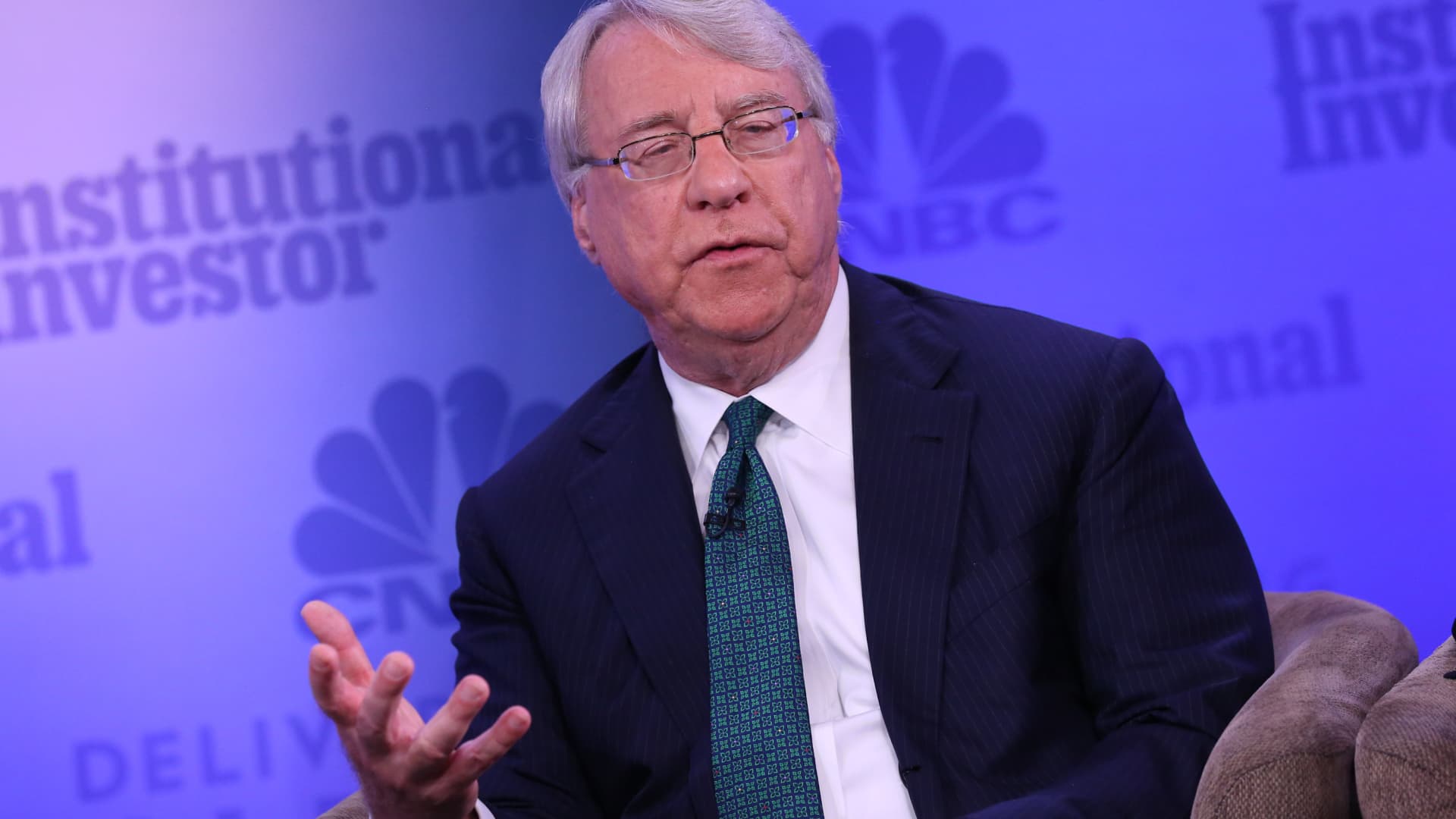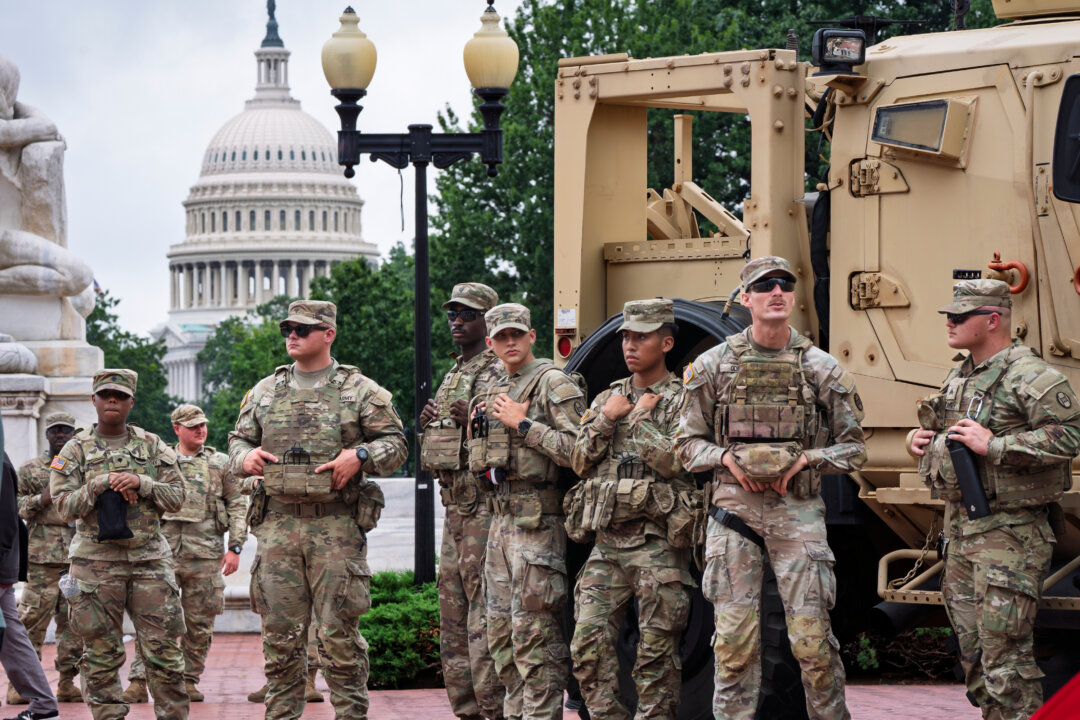30 days, 9 terror modules, 40+ Jihadis, and 2,900 kg explosives: The silent counter-terror war behind the Red Fort blast
The car blast near the Red Fort in New Delhi on 11th November killed 10 people and injured over 30 others. While such an Islamic terror attack deep inside Indian cities was a disgraceful norm in the UPA era, it is a rarity since Narendra Modi assumed the Prime Minister’s office in 2014. Understandably, the attack has sent shockwaves across the nation. Even before the security and intelligence agencies could determine whether it was a terror attack or an accidental CNG cylinder blast, the allegations of intelligence lapses, Modi’s failure, and even more cynical claims of PM Modi orchestrating the attack to gain political clout to win the Bihar elections surfaced on social media and political discourse. On one side, the opposition parties decried ‘systemic failure’ and their supportive voices on social media amplified the Pakistani ISPR’s ‘false flag operation’ propaganda. On the other hand, the Indian nationalist voices hailed the security agencies and extended unflinching support, invoking the famous dialogue from the series The Family Man— “We have to win every time; they [terrorists] only have to win once.” However, amidst the cacophony of politics and propaganda, India’s security apparatus is actively busting terror modules and arresting Islamic terrorists. In the last 30 days alone, Indian intelligence and law enforcement agencies have dismantled 8 terror plots, arrested dozens of Islamic Jihadis and confiscated massive stockpiles of arms and explosives. The huge caches of explosives seized during multiple raids indicate that there was a much larger attack, and on an important day, being planned by Islamic Jihadis to rock India’s core and kill hundreds or perhaps thousands of innocent people. Our security agencies, however, thwarted the plans of the Jihadis backed by international terror groups like ISIS, Al-Qaeda, Jaish-e-Mohammed and other Pakistan’s ISI-backed modules. 9th October: Babbar Khalsa terror module busted in Punjab, two arrested, and RDX recovered On 9th October, the Punjab Police said that it had busted a Pakistan’s ISIS-backed terror module of the Khalistani terror group Babbar Khalsa International. The police arrested two individuals named Gurjinder Singh and Diwan Singh, from Jalandhar and recovered an RDX-fitted improvised explosive device along with a remote control. Both the arrested terrorists were booked under the stringent Unlawful Activities (Prevention) Act (UAPA) and the Explosives Substances Act. In a media interaction, DSP Gaurav Yadav revealed that the RDX was to be used for a targeted terror attack. “In a major breakthrough against Pakistan’s ISI-backed terror network, the Counter Intelligence, Jalandhar, busts a Babbar Khalsa International terror module operated by UK-based handlers Nishan Jaurian and Adesh Jamarai on the directions of BKI mastermind Harwinder Singh Rinda and recovers 2.5 kg IED/RDX and one remote control,” the DGP said. 15th October: Punjab Police dismantled a cross-border arms-narcotics smuggling network On 15th October 2025, the Punjab Police busted a cross-border arms and narcotics smuggling module which had links to Pakistan. The police arrested three people named Rajan alias Sagar, Surinder Singh alias Pali, and Jagjit Singh and recovered 10 sophisticated pistols along with 500 grams of opium from their possession. Among the arms seized from the arrested individuals were four 9MM Glock pistols and six .30 bore pistols. Initial investigation revealed the arrested trio were running an inter-district gang of smuggling and was in contact with a Pakistan-based handler. In a remarkable feat, the Border Security Force (BSF) arrested almost 350 drug smugglers in Punjab along the India-Pakistan border since January 2024. This means one arrest every alternate day. Most of the arrests were made in Amritsar, Tarn Taran and Ferozepur districts. Notably, these regions are known for frequent drone intrusions from Pakistan, says a report in the Tribune. In 2021, the Central Government decided to extend the BSF’s operational jurisdiction from 15 km to 50 km, giving the force the power to carry out searches, seizures and arrests across a wider area. At that time, parties like Congress and TMC had opposed the move. However, officials have made it clear that most of the arrests by the BSF still occur within the earlier 15 km zone. 17th October: Andhra Pradesh Police arrested two Pakistan-based Jaish-e-Mohammed Jihadis The Andhra Pradesh Police arrested two active Jihadis linked to the Pakistan-based Islamic terror group Jaish-e-Mohammed. The arrested duo, identified as Sajjad Hussain from Uttar Pradesh and Taufiq Alam Shaik from Maharashtra, were in touch with Kotwal Noor Mohammed, who worked as a cook in a hotel in Sri Sathya Sai district, although hr was an active member of the JeM Jihadi network. In August, Noor Mohammed was arrested by the Dharmavaram Police for luring Muslim youth into committing Jihadi terrorist crimes b



The car blast near the Red Fort in New Delhi on 11th November killed 10 people and injured over 30 others. While such an Islamic terror attack deep inside Indian cities was a disgraceful norm in the UPA era, it is a rarity since Narendra Modi assumed the Prime Minister’s office in 2014. Understandably, the attack has sent shockwaves across the nation.
Even before the security and intelligence agencies could determine whether it was a terror attack or an accidental CNG cylinder blast, the allegations of intelligence lapses, Modi’s failure, and even more cynical claims of PM Modi orchestrating the attack to gain political clout to win the Bihar elections surfaced on social media and political discourse.
On one side, the opposition parties decried ‘systemic failure’ and their supportive voices on social media amplified the Pakistani ISPR’s ‘false flag operation’ propaganda. On the other hand, the Indian nationalist voices hailed the security agencies and extended unflinching support, invoking the famous dialogue from the series The Family Man— “We have to win every time; they [terrorists] only have to win once.”
However, amidst the cacophony of politics and propaganda, India’s security apparatus is actively busting terror modules and arresting Islamic terrorists. In the last 30 days alone, Indian intelligence and law enforcement agencies have dismantled 8 terror plots, arrested dozens of Islamic Jihadis and confiscated massive stockpiles of arms and explosives. The huge caches of explosives seized during multiple raids indicate that there was a much larger attack, and on an important day, being planned by Islamic Jihadis to rock India’s core and kill hundreds or perhaps thousands of innocent people.
Our security agencies, however, thwarted the plans of the Jihadis backed by international terror groups like ISIS, Al-Qaeda, Jaish-e-Mohammed and other Pakistan’s ISI-backed modules.
9th October: Babbar Khalsa terror module busted in Punjab, two arrested, and RDX recovered
On 9th October, the Punjab Police said that it had busted a Pakistan’s ISIS-backed terror module of the Khalistani terror group Babbar Khalsa International. The police arrested two individuals named Gurjinder Singh and Diwan Singh, from Jalandhar and recovered an RDX-fitted improvised explosive device along with a remote control. Both the arrested terrorists were booked under the stringent Unlawful Activities (Prevention) Act (UAPA) and the Explosives Substances Act.
In a media interaction, DSP Gaurav Yadav revealed that the RDX was to be used for a targeted terror attack. “In a major breakthrough against Pakistan’s ISI-backed terror network, the Counter Intelligence, Jalandhar, busts a Babbar Khalsa International terror module operated by UK-based handlers Nishan Jaurian and Adesh Jamarai on the directions of BKI mastermind Harwinder Singh Rinda and recovers 2.5 kg IED/RDX and one remote control,” the DGP said.
15th October: Punjab Police dismantled a cross-border arms-narcotics smuggling network
On 15th October 2025, the Punjab Police busted a cross-border arms and narcotics smuggling module which had links to Pakistan. The police arrested three people named Rajan alias Sagar, Surinder Singh alias Pali, and Jagjit Singh and recovered 10 sophisticated pistols along with 500 grams of opium from their possession.
Among the arms seized from the arrested individuals were four 9MM Glock pistols and six .30 bore pistols. Initial investigation revealed the arrested trio were running an inter-district gang of smuggling and was in contact with a Pakistan-based handler.
In a remarkable feat, the Border Security Force (BSF) arrested almost 350 drug smugglers in Punjab along the India-Pakistan border since January 2024. This means one arrest every alternate day.
Most of the arrests were made in Amritsar, Tarn Taran and Ferozepur districts. Notably, these regions are known for frequent drone intrusions from Pakistan, says a report in the Tribune. In 2021, the Central Government decided to extend the BSF’s operational jurisdiction from 15 km to 50 km, giving the force the power to carry out searches, seizures and arrests across a wider area. At that time, parties like Congress and TMC had opposed the move. However, officials have made it clear that most of the arrests by the BSF still occur within the earlier 15 km zone.
17th October: Andhra Pradesh Police arrested two Pakistan-based Jaish-e-Mohammed Jihadis
The Andhra Pradesh Police arrested two active Jihadis linked to the Pakistan-based Islamic terror group Jaish-e-Mohammed. The arrested duo, identified as Sajjad Hussain from Uttar Pradesh and Taufiq Alam Shaik from Maharashtra, were in touch with Kotwal Noor Mohammed, who worked as a cook in a hotel in Sri Sathya Sai district, although hr was an active member of the JeM Jihadi network. In August, Noor Mohammed was arrested by the Dharmavaram Police for luring Muslim youth into committing Jihadi terrorist crimes by joining the JeM.

After Sajjad and Taufiq’s arrest, the Andhra Pradesh Police revealed that they seized a single-barreled gun and Islamic Jihadi literature from their possession. The arrested Jihadis were members of various WhatsApp groups and channels operated by Jaish-e-Mohammed and had direct links with Talha Bhai, brother of Moulana Masood Azhar, chief of JeM Pakistani terrorist Talha was involved in brainwashing Indian Muslim youth into waging Jihad against the Hindu-majority India.
24th October: Delhi Police busted an ISIS terror module planning ‘Jihad against Kafirs’
On 24th October 2025, the Delhi Police Special Cell dismantled an Islamic State of Iraq and Syria (ISIS) terrorist module and thwarted a terror conspiracy. The operation resulted in the arrest of two terrorists, Mohammad Adnan Khan alias Abu Muharib, who was a resident of Delhi and Adnan Khan alias Abu Mohammad, who was a resident of Madhya Pradesh. While Muharib was 19 years old, Mohammad was 20.
The Delhi Special Cell said, “One of the suspects from Bhopal had previously been arrested by UP ATS under the Unlawful Activities (Prevention) Act; after obtaining bail in 2024, he resumed terrorist-related activity, chiefly through online recruitment and propaganda dissemination. Surveillance established that the module had begun procuring materials for improvised explosive devices (IEDs)”.

The Delhi Special Cell revealed that Mohammad had been arrested under the stringent UAPA Act; however, the Court had granted him bail in 2024. Since he was out on bail, he resumed his terrorist activity and his association with ISIS. He started disseminating Islamic propaganda material and recruiting terrorists for ISIS through social media. He had also started acquiring material to make IED devices for terror attacks.
Mohammad Adnan, now arrested by the Delhi Special Cell, had threatened a judge associated with the Gyanvapi case. He had taken to Instagram to write, “THE KAFIRS BLOOD IS HALAL FOR YOU THOSE WHO FIGHT AGAINST YOUR DEEN.” In the image, the word “KAFIR” is prominently displayed in red above the judge’s eyes.
27th October: Zubair arrested under UAPA for terror links, Al Qaeda literature, videos and more
On 27th October, the Maharashtra Anti-Terrorism Squad (ATS) apprehended a 35-year-old Pune-based IT professional for having terror links. The accused was identified as Zubair Hangargekar, who is from the Kondhwa neighbourhood of Pune. He was arrested over charges of owning literature from the terrorist group al-Qaida. A friend of his was also arrested for interrogation at the Pune train station shortly after the two returned from Chennai after a function.
An FIR was filed against Jihadi Zubair Hangargekar in accordance with the Unlawful Activities Prevention Act (UAPA). On 9th October, the ATS raided the homes and workplaces of 19 suspects, including him, in response to information gathered during the investigation into the Satara robbery and terror funding case, according to ATS sources. The authorities confiscated various electronic equipment, including laptops, hard drives and cell phones, as well as documents and books during the operation.

During the searches conducted at various sites throughout the city on 9th October, the ATS seized 40 cell phones in addition to the 19 laptops.
7th November: Rajasthan ATS arrested Tehreek—e-Taliban Pakistan-linked Jihadi Maulvi Umar Osama
The Rajasthan ATS arrested a Maulvi named Umar Osama from Sanchore in Rajasthan’s Jalore district. The arrest came after it was confirmed that Umar Osama had direct links with the Afghanistan-based Islamic terror group Tehrik-e-Taliban Pakistan (TTP). Osama was in contact with TTP top commanders for four years and was involved in recruiting and radicalising Muslim youth near the Gujarat-Rajasthan border.
He was using encrypted apps to communicate with his foreign handlers and had managed to lure four youths into taking up Jihadi activities. The arrested Jihadi Maulvi was attempting to flee to Afghanistan via Dubai but was nabbed by vigilant Rajasthan ATS. Osama’s great-grandfather, Vali Mohammed, was a Congress MLA from Barmer.

9th November: Gujarat ATS busted Ricin bioterror plot and arrested ISKP-linked Jihadi doctors
On the 9th of November 2025, the Gujarat Anti-Terrorist Squad (ATS) arrested three men, including one Dr Ahmed Mohiyuddin Saiyed from Telangana, who had been researching how to make Ricin, which is banned internationally for its extreme toxicity. These jihadis are linked to the ISIS-affiliate Islamic State of Khorasan Province (ISKP). The authorities recovered 4 kg of castor-bean mash and other material used for preparing the lethal Ricin poison.
According to the ATS, Dr Saiyed, 35, who has a medical degree from China, worked under the instructions of a person named Abu Khadija, a resident of Afghanistan connected with the Islamic State Khorasan Province (ISKP). He was also in touch with several people from Pakistan. During interrogation, Saiyed confessed that he had been preparing to make Ricin, also known as “Ryzin,” a highly toxic substance made from castor beans. For this, he had arranged research materials, chemical equipment, and raw ingredients needed for the process.

The ATS team caught Saiyed during a raid near Adalaj Toll Plaza on the Ahmedabad-Mehsana Road after receiving confidential information. He was driving a silver Ford Figo car in which officers found two Glock pistols, one Beretta pistol, 30 live cartridges, and about 4 litres of castor oil stored in a plastic container.
The forensic scan of Saiyed’s devices helped the police track down two others: Azad Suleman Sheikh, 20, a tailor from Shamli in Uttar Pradesh, and Mohammad Suhail Mohammad Saleem Khan, 23, a student from Lakhimpur Kheri, Uttar Pradesh. They had helped Saiyed get the weapons and were working with him from Banaskantha in Gujarat.
The authorities revealed that the weapons recovered from the accused Islamic terrorists were received from Hanumangarh in Rajasthan, with their handler sending arms consignments by drones across the Pakistan border. The ATS also highlighted that Saiyed told them that his handler was an Afghan man named Abu Khadija who was connected to the Islamic State Khorasan Province (ISKP).
The arrested Jihadis conducted reconnaissance on the RSS office in Lucknow, the Agriculture Produce Market Committee in Azadpur of Delhi and the fruit market in Naroda, Ahmedabad, during the past six months.
10th November: Jammu and Kashmir Police recovered 2,900 kg of explosive material from Faridabad
On 10th November, the Jammu and Kashmir Police unearthed a “white-collar terror network” involving doctors, clerics, and professionals allegedly working for Pakistan-backed terror outfits Jaish-e-Mohammed (JeM) and Ansar Ghazwat-ul-Hind (AGH). The authorities recovered nearly 2,900 kilograms of explosive material from two houses in Faridabad, just 45 kilometres from Delhi.
The key accused, Dr Muzammil Shakil, a 35-year-old physician from Pulwama, and Dr Adeel Ahmad Rather, from Kulgam, were allegedly in direct contact with terror handlers in Kashmir and Pakistan. According to interrogation reports, both were awaiting final instructions for a major strike in the Delhi-NCR region.
The handlers, sources say, specifically chose doctors believing “no one would suspect well-educated professionals in white coats.”
The raids on Dr Muzammil’s two rented homes in Dhauj and Fatehpur Taga villages of Faridabad left investigators stunned. Over 350 kilograms of explosives, 20 timers, assault rifles, handguns, and ammunition were recovered from a house in Dhauj. In another recovery from a house in Fatehpur Taga, a staggering 2,563 kilograms of ammonium nitrate was found, a chemical commonly used in large-scale bombings.
In total, the two raids yielded nearly 2,900 kilograms of explosive material, including electronic circuits, wires, remote controls, batteries, and metal sheets, enough to assemble multiple powerful Improvised Explosive Devices (IEDs). Police also recovered a Beretta pistol, a Chinese Star handgun, an AK-56 rifle, and an AK Krinkov rifle.
This counter-terror operation came just hours before the car blast terror attack near Delhi’s Red Fort on Monday evening. While all angles are being investigated, reports say that Dr Umar Nabi, who was driving the explosives-laden car, had panicked after the arrest of his fellow jihadists and may have acted in haste to evade surveillance and destroy evidence, ending up getting himself and 13 innocent civilians killed. The Jihadi drove for 16 hours after the Faridabad terror module was busted.
Faridabad’s Al-Falah University came under the scanner after police unearthed a massive cache of explosives and arrested multiple doctors associated with it. Although the varsity denies any direct involvement in the Delhi terror attack, the authorities are conducting a thorough investigation of everyone and everything suspicious there.
Earlier, OpIndia reported that Al Falah University’s Chancellor Jawad Ahmad Siddiqui had a problematic past. Jawwad Ahmad Siddiqui was in Tihar Jail with his two brothers for defrauding investors in Al-Falah Investment Limited.
12th November: NIA conducted inter-state raids in connection with the Al-Qaida Gujarat terror conspiracy case
On 12th November, the National Investigation Agency conducted searches at 10 locations across five states in the 2023 Al Qaida Gujarat terror conspiracy case involving illegal Bangladeshi immigrants.
In a press statement, the probe agency said that NIA teams conducted searches at premises linked to various suspects and their associates at selected locations in the states of West Bengal, Tripura, Meghalaya, Haryana, and Gujarat. Several digital devices and incriminating documents were seized during the searches and are being sent for forensic analysis.
The NIA said that four Bangladeshi nationals, identified as Mohammad Sojibmiyan, Munna Khalid Ansari alias Munna Khan, Azarul Islam alias Jahangir alias Aakash Khan, and Abdul Latif alias Mominul Ansari, had illegally infiltrated into India from Bangladesh using fake Indian identity documents. The Jihadi trio was connected with the proscribed Al-Qaida Islamic terrorist organisation.
NIA Searches Multiple Locations in 5 States in Al Qaida Gujarat Terror Conspiracy Case pic.twitter.com/7T2G9tI3BN
— NIA India (@NIA_India) November 13, 2025
As per the NIA’s findings, these Jihadis were collecting and transferring funds to Al Qaida terrorists in Bangladesh, and were also found to be actively brainwashing Muslim youth.
30 days, numerous terror modules busted, terrorists arrested: Security agencies are continuously fighting the war against terrorism
Over the last 30 days alone, the Indian security and intelligence agencies have busted numerous terror modules, arrested Jihadis preparing to spill the blood of Kafirs of this Hindu-majority country. Besides Islamic terrorists, the security agencies have also been busting ISI-backed Khalistani terror modules. In total, in just over 30 days, the security agencies arrested more than 40 terrorists, seized arms and explosives enough to target many cities and disrupt the terror-funding streams worth crores.
While today those from the same political party that blocked decisive military action against Pakistan after 26/11 Mumbai attacks and whose leader wept for Jihadis, now labels the Modi government weak and cries of ‘intelligence failure’, the Islamo-leftist cabal parrots Pakistan’s ‘false flag’ propaganda linking the Delhi attack to Bihar elections, and Muslims are busy portraying ‘Islamophobia’ as a bigger problem than Jihadi terrorism, the NIA, state ATS units and local police are confronting and dismantling the many forms of terror.
From online Islamic radicalisation networks, explosives-gathering Jihadis to Ricin labs-operating ‘doctors’, the security agencies are fighting and largely winning this asymmetric physical-digital-ideological war. While the Red Fort car blast terror attack rightly grabbed all the media and national attention, the many terror conspiracies foiled by the security agencies deserved commendation. The killing of innocent people in the Delhi terror attack will certainly be avenged. However, one catastrophic slip should not erase the many silent victories of our security agencies against terrorism.







































































